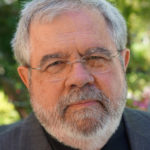Like historical fascist leaders, Trump has presented himself as the single source of truth. His use of the term “fake news” echoed the Nazi smear Lügenpresse (“lying press”); like the Nazis, he referred to reporters as “enemies of the people.” Like Adolf Hitler, he came to power at a moment when the conventional press had taken a beating; the financial crisis of 2008 did to American newspapers what the Great Depression did to German ones. The Nazis thought that they could use radio to replace the old pluralism of the newspaper; Trump tried to do the same with Twitter.
Thanks to technological capacity and personal talent, Donald Trump lied at a pace perhaps unmatched by any other leader in history. For the most part these were small lies, and their main effect was cumulative. To believe in all of them was to accept the authority of a single man, because to believe in all of them was to disbelieve everything else. Once such personal authority was established, the president could treat everyone else as the liars; he even had the power to turn someone from a trusted adviser into a dishonest scoundrel with a single tweet. Yet so long as he was unable to enforce some truly big lie, some fantasy that created an alternative reality where people could live and die, his pre-fascism fell short of the thing itself.

Some of his lies were, admittedly, medium-size: that he was a successful businessman; that Russia did not support him in 2016; that Barack Obama was born in Kenya. Such medium-size lies were the standard fare of aspiring authoritarians in the 21st century. In Poland the right-wing party built a martyrdom cult around assigning blame to political rivals for an airplane crash that killed the nation’s president. Hungary’s Viktor Orban blames a vanishingly small number of Muslim refugees for his country’s problems. But such claims were not quite big lies; they stretched but did not rend what Hannah Arendt called “the fabric of factuality.”
One historical big lie discussed by Arendt is Joseph Stalin’s explanation of starvation in Soviet Ukraine in 1932-33. The state had collectivized agriculture, then applied a series of punitive measures to Ukraine that ensured millions would die. Yet the official line was that the starving were provocateurs, agents of Western powers who hated socialism so much they were killing themselves. A still grander fiction, in Arendt’s account, is Hitlerian anti-Semitism: the claims that Jews ran the world, Jews were responsible for ideas that poisoned German minds, Jews stabbed Germany in the back during the First World War. Intriguingly, Arendt thought big lies work only in lonely minds; their coherence substitutes for experience and companionship.
In November 2020, reaching millions of lonely minds through social media, Trump told a lie that was dangerously ambitious: that he had won an election that in fact he had lost. This lie was big in every pertinent respect: not as big as “Jews run the world,” but big enough. The significance of the matter at hand was great: the right to rule the most powerful country in the world and the efficacy and trustworthiness of its succession procedures. The level of mendacity was profound. The claim was not only wrong, but it was also made in bad faith, amid unreliable sources. It challenged not just evidence but logic: Just how could (and why would) an election have been rigged against a Republican president but not against Republican senators and representatives? Trump had to speak, absurdly, of a “Rigged (for President) Election.”
The force of a big lie resides in its demand that many other things must be believed or disbelieved. To make sense of a world in which the 2020 presidential election was stolen requires distrust not only of reporters and of experts but also of local, state and federal government institutions, from poll workers to elected officials, Homeland Security and all the way to the Supreme Court. It brings with it, of necessity, a conspiracy theory: Imagine all the people who must have been in on such a plot and all the people who would have had to work on the cover-up.
- Snyder, Timothy. “The American Abyss.” The New York Times, January 9, 2021, sec. Magazine. https://www.nytimes.com/2021/01/09/magazine/trump-coup.html.
See also
- Snyder, Timothy. “American Abyss”: Fascism Historian Tim Snyder on Trump’s Coup Attempt, Impeachment & What’s Next. Interview by Amy Goodman and Juan Gonzalez, January 13, 2021. https://www.democracynow.org/2021/1/13/capitol_insurrection_historian_timothy_snyder.

The remainder of Timothy Snyder’s article is most disturbing reading. Trump can disappear but in the present context of disillusionment and loss of confidence in the political system that will open the door to a worse outcome. The potential for national fracturing violence and intimidation in 2024 is real. As per David Cay Johnston of DCReport.org:
We’re Fighting The Second American Civil War
If you enjoyed this post, please consider donating to Vridar. Thanks!


Let’s not forget the earlier American big lie – the Civil War had nothing to do with slavery.
Bob, It’s hard to find a stronger word than, “nothing”. I’ve been there. Thankfully I experienced a “soft landing” (see previous post on mind changing).
Bob, forgive me for misreading your comment. That “earlier big lie” unfortunately still persists with some groupes.
I believe that Hitler probably did get upset at the Jews when he discovered the 15 year old “stab in the back”. I may agree with some of your conclusions and logic but not with all your premises.
.
As for Trump, he may still be in charge for a day or so, so please, I implore all lovers of truth, free speech and justice, to email him to beg for a pardon for Julian Assange while there’s still time
.
https://www.whitehouse.gov/contact/